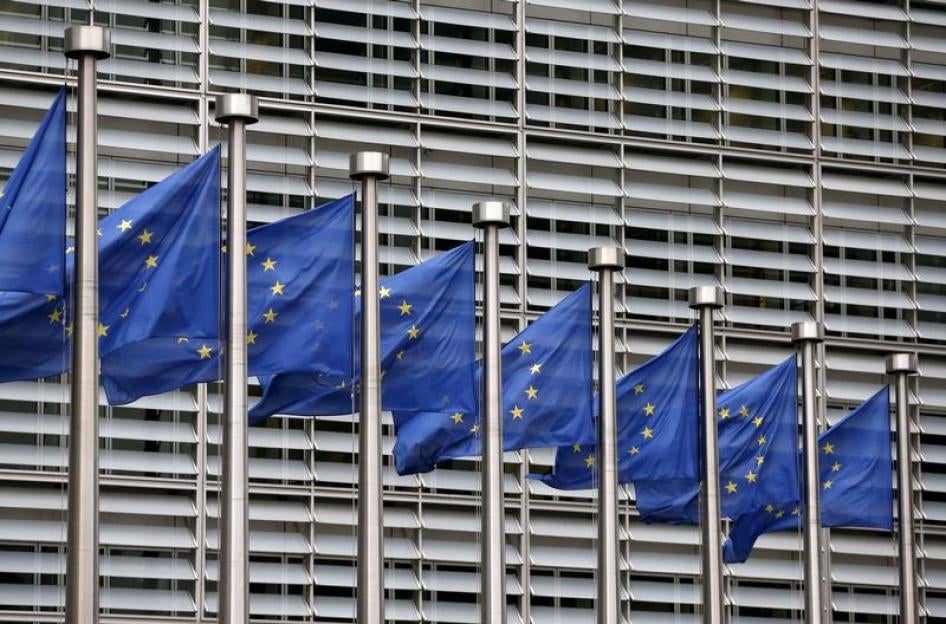It’s been thirty years since the people of Central and Eastern Europe overthrew the totalitarian communist system. Since then, there has been a lot to celebrate. But Europeans should not be complacent. Those gains are at serious risk today in Hungary. The defense of rights and freedom requires a joint response from all European Union member states.
The opportunity will come later this month when the EU Council holds its first hearing on the situation in Hungary. But the hearing is also a test of Europe’s willingness to confront a democratic crisis in its midst. The Czech Republic should stand with other EU states to prioritize the defense of democracy and the rule of law above politics.
The Hungarian government’s record provides ample cause for concern. Laws passed by the parliament, led by the ruling party Fidesz, have put freedom of association and the work of civil society at risk. A 2017 law requires civic groups that receive international funding to register as “foreign-funded” – a provision inspired by Russia’s “Foreign Agents” Law, which tars such groups as spies. Other new Hungarian laws criminalize organizations and individuals that aid people fleeing war and oppression. Another imposes a 25 percent surtax on organizations that address issues the ruling party doesn’t like.
Hungary’s media is largely controlled by Prime Minister Viktor Orbán’s government and its allies. The December 2018, government-organized merger of more than 400 media outlets into one conglomerate loyal to the government essentially put an end to media pluralism in the country. The few remaining independent, investigative outlets do good work but have limited reach. It’s no surprise that Austria’s far-right leader, Heinz-Christian Strache, sought to emulate Orbán’s approach.
After European Parliamentary elections in May didn’t make Fidesz the kingmaker that Orbán had hoped, his government tried to placate critics by announcing in June that it would postpone the establishment of a new administrative court system that would undermine judicial independence by making the appointment and careers of many judges subject to ministerial control. But no one should be fooled by this modest retreat. Hungary’s judiciary is already largely under the control of the ruling party.
After the government forced Central European University to leave the country and banned academic subjects it disagreed with, authorities set their sights on the Hungarian Academy of Sciences, stripping it of its ability to do independent research and putting it, too, under effective government control.
Institutions such as the Council of Europe’s constitutional body have repeatedly called on Hungary to amend problematic legislation, but Budapest has ignored them. UN human rights experts have time and again criticized Hungary’s repressive actions, but Hungary’s foreign minister has offered aggressive and dismissive responses. In Hungary itself, as the space for public debate shrinks by the day, civil society activists, independent journalists, former judges, academics, and anti-corruptions activists are calling for outside support.
It is time to heed their call. Hungary matters, in its own right and as a model for democracy foes elsewhere. For example, Poland’s ruling Law and Justice party has drawn inspiration from the Orbán government, as it too undermines the independence of the courts, limits space for independent media, attacks civil society organizations, uses xenophobic and homophobic fearmongering in pro-government media, and demonizes women’s rights and environmental activists.
When Czechs and Slovaks turned towards democracy and human rights in 1989, it was not a half step but a decisive turn away from authoritarian rule. By embracing democracy and later joining the EU, the Czech Republic also accepted its responsibilities as a European Union member—foremost, to safeguard democratic values and the rule of law.
Orbán uses populist hatemongering against perceived enemies to justify his anti-democratic actions. When the European Parliament offers justified criticism, he dismisses it by claiming a lack of understanding of Central Europe. That’s why principled leadership by the Czech Republic is so important.
As EU Affairs ministers hold their first formal discussions on the situation in Hungary, the Czech Republic should stand up and make its voice heard. Threats to the rule of law and democratic values in Hungary and Poland are real. They should be reversed, not ignored.









